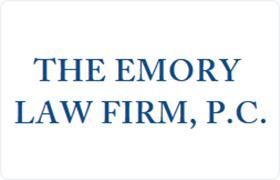Cleveland DUI-DWI Lawyer, North Carolina
Sponsored Law Firm
-
 x
x

Click For More Info:
-
The Emory Law Firm
11020 David Taylor Dr. Suite 102 Charlotte, NC 28262» view mapCriminal Defense Law Our People Make The Difference
We’re dedicated to ensuring that we take care of all of our clients, and that their legal needs are met and exceeded. We offer high-quality legal work and personal client service.
800-972-6341
Seth J. Johnson
Wills & Probate, Workers' Compensation, Family Law, DUI-DWI
Status: In Good Standing Licensed: 19 Years
Michael Gregory Whitfield
Litigation, Estate Planning, Family Law, DUI-DWI, Criminal
Status: In Good Standing
 C. Randolph Emory Charlotte, NC
C. Randolph Emory Charlotte, NC Practice AreasExpertise
Practice AreasExpertise
